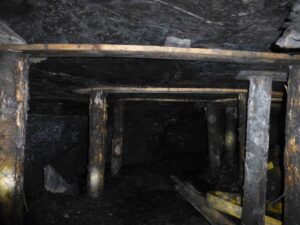Food processing company fined after worker suffered thumb amputation
Troy Foods Ltd has been sentenced for safety breaches after a production supervisor suffered a serious injury when his hand came into contact with dangerous parts of a potato processing machine.
Leeds Magistrates’ Court heard that, on 2 September 2019 at the site at Royds Farm Industrial Estate, Farm Road Leeds, the supervisor was cleaning out machinery between product runs when his hand came into contact with a rotating auger which was not adequately guarded. He sustained injuries which resulted in a thumb amputation and a broken finger.
An investigation by the Health and Safety Executive (HSE) found that access to the dangerous rotating auger was possible because the bagging unit conveyor and auger were not adequately guarded, and the machine did not comply with safety reach distances set out in BS EN 13857.
Troy Foods Ltd of Unit 1 Intermezzo Drive Leeds West Yorkshire pleaded guilty to breaching Regulation 11 (1) of the Provision and Use of work Equipment Regulations 1998. The company has been fined £33,333 and ordered to pay £670.53 in costs and a victim surcharge of £180.
After the hearing, HSE inspector Julian Franklin commented: “Employers should make sure they properly assess and apply effective control measures to minimise the risk from dangerous parts of machinery.
“This incident could so easily have been avoided by simply carrying out correct control measures and safe working practices”
Notes to Editors:
- The Health and Safety Executive (HSE) is Britain’s national regulator for workplace health and safety. We prevent work-related death, injury and ill health through regulatory actions that range from influencing behaviours across whole industry sectors through to targeted interventions on individual businesses. These activities are supported by globally recognised scientific expertise. hse.gov.uk[1]
- More about the legislation referred to in this case can be found at: legislation.gov.uk/ [2]
- HSE news releases are available at http://press.hse.gov.uk[3]
- Please see the link below to the page on HSE’s website that is the best guide to doing it the right way https://www.hse.gov.uk/work-equipment-machinery/puwer.htm

